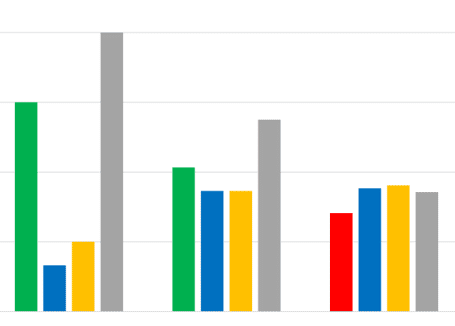This is sure to be a controversial message to some folks, so I will make every effort to present
both sides. I know I am sticking my neck out, but here goes.
As we help companies uncover their competitive advantages, often some will immediately tout
their strong Net Promoter Score. I always cringe when I hear that because it may or may not be
representative of a real market place finding. First, keep in mind the respondents are, as they
say, “self-selected.” They are your customers. Without the input from folks who have chosen
to go elsewhere, NPS doesn’t represent a comprehensive view of what the market place thinks
of your company, service and/or product.
Another reason using the NPS as a competitive advantage is flawed, in our view, is based on
research findings reflected in our double-blind studies. We have conducted over 300
customer/prospect surveys over the years for companies of all sizes in multiple industries. We
ask customers and prospects of a company to rate about 20 buying attributes. Frequently,
included in that list is the question “on a 1 to 10 scale, how high do you value a company’s
customer referral rate when you choose a company?” It rarely scores in the top half of the list,
let alone the top 3 or 4.
If other people’s opinions do not have a big impact on a buyer’s decision, then how important
will they rank your NPS in making a buying selection. It seems paradoxical. If your customers
say they would very likely recommend you, but neither customers nor prospects use that in
making a buying decision, then what is the value? I am not saying it is “valueless”; but if it is
not a top buying criterion then it may mislead us at best, and in the worst case, cause some
complacency. We may think we are better perceived than reality.
Let’s look at the pros: NPS is simple and easy, it can provide a benchmark, it is a well-known
and widely used method of validating customer approval. It lets your customers know you
value their opinion by asking, and it serves a report card. On the con side, NPS often provides
limited insight in how to interpret findings and is broadly focused on customer relationships
rather than on transactions, (so it provides a “summary” rather than pinpointing areas that may
be of concern. Because it is so universal, I have read that companies sometimes focus more on
the scoring rather than the actual customer experience. Some even base compensation on NPS
scores. Heavens, most of us have all been annoyed by our car service manager asking us to
please rate him a 10 for his service. (I think they finally stopped that). I even had a funeral
director ask me if would rate him a 10 on his J. D. Power evaluation. He asked me that while I
was picking up my mother’s ashes. How damaging do you think that kind of request becomes?
Be careful when the scoring outweighs the delivery. Be mindful of what NPS doesn’t tell you.
If you want more on why it may be misleading and dangerous, read this article:
https://blog.usejournal.com/net-promoter-score-considered-harmful-and-what-ux-professionals-can-do-about-it-fe7a132f4430

